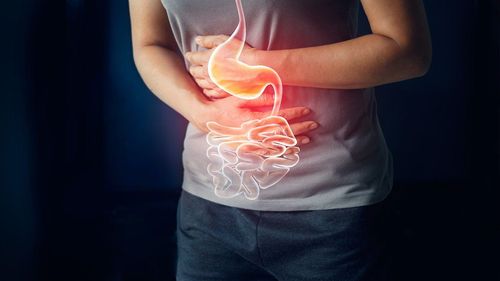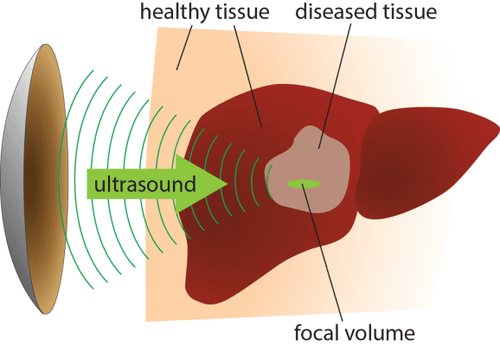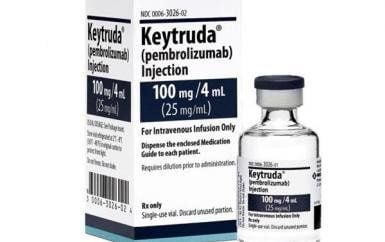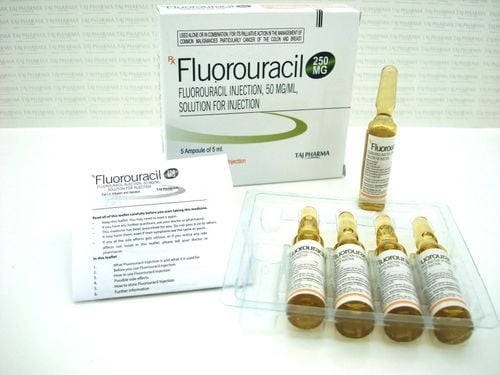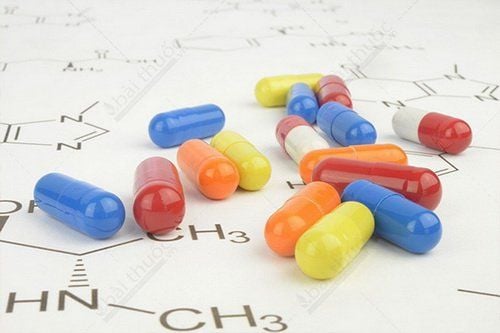This is an automatically translated article.
Gastrectomy is surgery to treat certain diseases such as stomach cancer, peptic ulcer, gastric perforation. There are two basic surgical methods: partial or total resection. The following article will answer readers' questions about when to remove the entire stomach and how to care for the patient after surgery.
1. Why to remove the entire stomach?
Total gastrectomy is surgery to remove the stomach with the upper limit to the abdominal esophagus and below the pylorus to the duodenum. The doctor will then perform a jejunal connection to the esophagus to ensure the digestive tract.
Total gastrectomy is indicated in the treatment of gastric cancer in patients with large tumors that cannot be treated with tumor resection, chemotherapy, or radiation therapy. This is needed to prevent cancer cells from spreading to other parts of the body. In cases where the patient has a small tumor located in the lower part of the stomach, a partial gastrectomy may also be indicated. However, if the tumor is large, located in the middle or high part, a total resection is also indicated.
Some other indications are less common in peptic ulcer or gastric perforation.
2. Total gastrectomy surgical method
Before surgery:
The doctor will explain to the patient about the surgical method, the benefits, risks, possible complications during and after surgery. The patient's family will sign the commitment to complete the administrative procedures to perform the surgery. Patients will have tests, ultrasound, endoscopy, computed tomography to evaluate the invasion and metastasis of the cancer. Patients will be supplemented to enhance nutrition, improve physical condition to ensure the recovery of albumin, blood protein, and adjust biochemical disorders to meet the requirements of surgery. The patient needs to take a shower the night before the surgery and the morning of the surgery with Betadine antiseptic solution. Within 6 hours before surgery, the patient needs to fast and can perform enema, bowel washing if necessary. Surgical process:
Use prophylactic antibiotics for the patient to fight infection. The patient was in the supine position, anesthesia, analgesia, and urinary catheter were placed. Perform abdominal incision, complete gastrectomy including the great omentum and lymph node dissection. Perform an oesophagojejunostomy on the Y loop through the transverse mesentery. Place drainage, stop bleeding, clean pump and close the abdominal cavity.

Hình ảnh mô phỏng về tình trạng cắt toàn bộ dạ dày
3. What happens after total gastrectomy?
The stomach is an important organ in the digestive system that plays a role in receiving food and preparing it before it is transferred to the small intestine. Therefore, many patients wonder that if the stomach is removed, will the digestive system work normally and how will nutrients be provided?
After surgery:
After gastrectomy, the patient is provided with nutrients by intravenous route including: water, sugar, amino acids, electrolytes to ensure energy for the body.
After 5 days, the patient can eat light foods such as milk, diluted porridge, ... many times a day. It is necessary to divide meals into several times, about 100ml each time for the digestive system to get used to. After a few weeks, you can eat rice normally.
In addition, the patient may face some complications such as:
Dumping syndrome:
This is a syndrome that occurs because food moves into the small intestine too quickly because the stomach is cut so the digestive function is not as usual. Patients have symptoms of abdominal pain, diarrhea, nausea, dizziness.. In mild cases, it can be controlled by reducing sugar in the daily diet and dividing meals. More severe cases of Dumping syndrome require surgical intervention.
This syndrome usually does not affect the patient's health much, but only causes discomfort in daily life. After about 3 months, the condition will usually go away on its own.
Weight loss in the first few months:
After gastric bypass surgery, the patient must use medication in combination with a strict diet with liquid food, which will make the patient lose weight in the first time. When health has recovered with a normal diet, the weight will be more improved.
Lactose intolerance:
Caused by a deficiency of the enzyme Lactase that helps digest this nutrient, this contributes to why after eating foods rich in lactose such as milk, cheese,... diarrhea.
Poor absorption of fat:
Because the stomach has been cut, food is stored in the intestine quickly, the contact time of food with digestive enzymes is poor, leading to poor absorption of fat. Food that goes straight to the small intestine is not processed by the stomach, so it is large in size, difficult for pancreatic enzymes to digest and absorb, making the patient reduce absorption of fat-soluble vitamins such as vitamins A, D, E, K.
Digestive disorders:
The first time after removing the entire stomach will have digestive problems such as: flatulence, bloating, indigestion, long fullness, vomiting, ... Can be overcome by Ways to implement a more suitable diet such as: dividing into many small meals, preparing thin and soft foods, enhancing vitamins that are difficult to absorb.

Sau khi cắt toàn bộ dạ dày, người bệnh có thể gặp tình trạng rối loạn tiêu hóa
4. Diet for patients after total gastrectomy
A general rule for patients after gastric bypass surgery that patients need to follow is to divide into several meals a day instead of the usual 3-meal diet. Pay attention to eat slowly, chew well for easy digestion.
Use protein-rich foods:
Protein-rich foods not only provide nutrients to create energy for the patient but also slow down the digestive process. Therefore, patients should eat foods such as meat, poultry, fish, eggs, cheese, butter, etc. which are very good for health.
Grains:
Patients after total gastrectomy should use low-fiber cereals. It is contained in plants (from grains, fruits and vegetables) to help food form mass and facilitate digestion. In addition, fiber also helps prevent constipation and certain cancers such as colon or colon cancer. It should be noted that patients with diverticulosis or chronic diarrhea should adopt a low-fiber diet.
Fruits and vegetables:
Most fruits and vegetables are good for patients after total gastrectomy. It should be noted that green vegetables must be eaten cooked and fruits should be peeled before eating.
Milk:
This is an essential food for the diet of gastrointestinal diseases to help restore energy to the body when the patient cannot eat or not eat other foods with similar sources. People after gastric bypass surgery can choose fully skimmed milk (skimmed milk) and dairy products containing 1% fat for their daily diet.
In addition, it is necessary to supplement with vitamins B1, B12 and iron to promote health and prevent anemia after surgery. Patients should not use fermented foods such as pickles, salted onions or hot spices, sour fruits, stimulant drinks and hard foods because it will not be good for the system. Digest.
Please dial HOTLINE for more information or register for an appointment HERE. Download MyVinmec app to make appointments faster and to manage your bookings easily.




